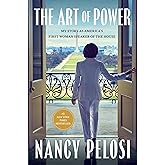
Enjoy fast, free delivery, exclusive deals, and award-winning movies & TV shows with Prime
Try Prime
and start saving today with fast, free delivery
Amazon Prime includes:
Fast, FREE Delivery is available to Prime members. To join, select "Try Amazon Prime and start saving today with Fast, FREE Delivery" below the Add to Cart button.
Amazon Prime members enjoy:- Cardmembers earn 5% Back at Amazon.com with a Prime Credit Card.
- Unlimited Free Two-Day Delivery
- Streaming of thousands of movies and TV shows with limited ads on Prime Video.
- A Kindle book to borrow for free each month - with no due dates
- Listen to over 2 million songs and hundreds of playlists
- Unlimited photo storage with anywhere access
Important: Your credit card will NOT be charged when you start your free trial or if you cancel during the trial period. If you're happy with Amazon Prime, do nothing. At the end of the free trial, your membership will automatically upgrade to a monthly membership.
Buy new:
-50% $16.00$16.00
Ships from: Amazon.com Sold by: Amazon.com
Save with Used - Good
$9.61$9.61
$3.99 delivery March 5 - 10
Ships from: Goodwill Charlotte Books Sold by: Goodwill Charlotte Books

Download the free Kindle app and start reading Kindle books instantly on your smartphone, tablet, or computer - no Kindle device required.
Read instantly on your browser with Kindle for Web.
Using your mobile phone camera - scan the code below and download the Kindle app.



 Audible sample
Audible sample Follow the authors
OK
Viewfinder: A Memoir of Seeing and Being Seen Hardcover – July 23, 2024
Purchase options and add-ons
“A must-read for aspiring artists and dreamers of all kinds.”—Ava DuVernay
Long before he directed Wicked, In The Heights, or the groundbreaking film Crazy Rich Asians, Jon M. Chu was a movie-obsessed first-generation Chinese American, helping at his parents’ Chinese restaurant in Silicon Valley and forever facing the cultural identity crisis endemic to children of immigrants. Growing up on the cutting edge of twenty-first-century technology gave Chu the tools he needed to make his mark at USC film school, and to be discovered by Steven Spielberg, but he soon found himself struggling to understand who he was. In this book, for the first time, Chu turns the lens on his own life and work, telling the universal story of questioning what it means when your dreams collide with your circumstances, and showing how it’s possible to succeed even when the world changes beyond all recognition.
With striking candor and unrivaled insights, Chu offers a firsthand account of the collision of Silicon Valley and Hollywood—what it’s been like to watch his old world shatter and reshape his new one. Ultimately, Viewfinder is about reckoning with your own story, becoming your most creative self, and finding a path all your own.
- Print length304 pages
- LanguageEnglish
- PublisherRandom House
- Publication dateJuly 23, 2024
- Dimensions5.75 x 1.03 x 8.52 inches
- ISBN-100593448944
- ISBN-13978-0593448946
Book recommendations, author interviews, editors' picks, and more. Read it now.

Explore your book, then jump right back to where you left off with Page Flip.
View high quality images that let you zoom in to take a closer look.
Enjoy features only possible in digital – start reading right away, carry your library with you, adjust the font, create shareable notes and highlights, and more.
Discover additional details about the events, people, and places in your book, with Wikipedia integration.
Frequently bought together
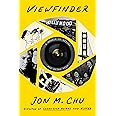
Customers who viewed this item also viewed
From the Publisher
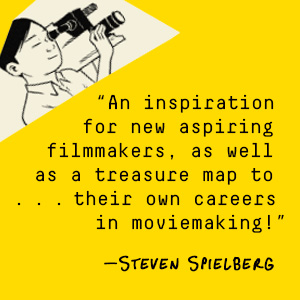
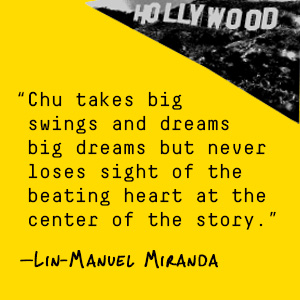
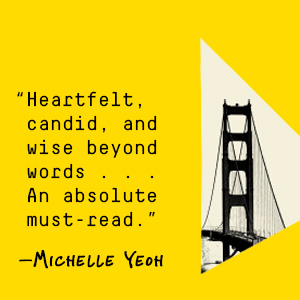
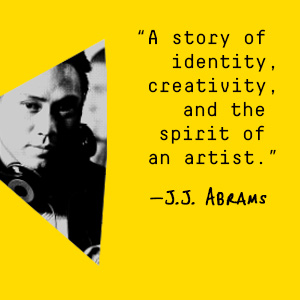
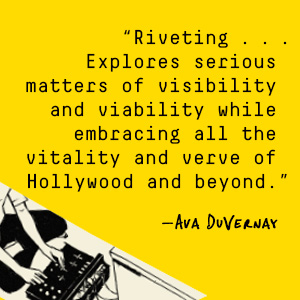
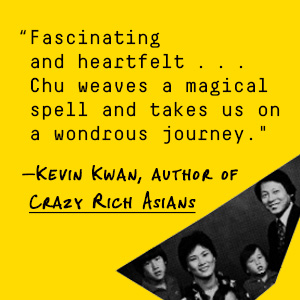
Editorial Reviews
Review
“On any given day of filming, Jon Chu finds what’s magic about the day and finds a way to capture it. He takes big swings and dreams big dreams but never loses sight of the beating heart at the center of the story he’s telling. I wish this book had been around when I was younger. I’m so grateful it’s here now.”—Lin-Manuel Miranda
“Heartfelt, candid and wise beyond words, this deeply insightful and wonderfully inspirational memoir by a true storyteller is an absolute must-read.”—Michelle Yeoh
“Jon M. Chu’s Viewfinder is a riveting chronicle of a singular filmmaker’s journey, exploring serious matters of visibility and viability while embracing all the vitality and verve of Hollywood and beyond. It’s a must-read for aspiring artists and dreamers of all kinds.”—Ava DuVernay
“Just like in one of his movies, Jon M. Chu weaves a magical spell and takes us on a wondrous journey through his childhood, his family life, and his cinematic adventures as one of the most visionary talents working in Hollywood today. Viewfinder is a fascinating and heartfelt story that will inspire every reader.”—Kevin Kwan, author of Crazy Rich Asians
“This memoir on the career of Jon Chu will be an inspiration for new aspiring filmmakers as well as a treasure map to the X that will mark the spot for finding their own careers in moviemaking!”—Steven Spielberg
“A thoughtful, candid, and affecting read for anyone with an interest in the impact of the tech industry on Hollywood and the Asian American experience.”—Booklist, starred review
“Inspirational and practical . . . As he recounts, Chu really came into his own with Crazy Rich Asians, the first full-length movie to allow him to explore his heritage, and In The Heights, which gave him a chance to do the kind of musical he had always longed to produce. . . . Entertaining insights from a unique film industry insider.”—Kirkus Reviews
“Chu and McCarter enliven the standard-issue celeb memoir beats with bits of wisdom aimed at aspiring filmmakers and welcome humor. Film fans—especially those with hopes of working in the business—will enjoy this.”—Publishers Weekly
About the Author
Jeremy McCarter is the co-author, with Lin-Manuel Miranda, of the #1 New York Times bestseller Hamilton: The Revolution. He is the author of Young Radicals, the founder of the acclaimed audio storytelling company Make-Believe Association, and the literary executor of the novelist and playwright Thornton Wilder.
Excerpt. © Reprinted by permission. All rights reserved.
The basketball players were like gods at my school. They were tall. They had swagger. My brother Larry wasn’t the tallest player on the team—six-two according to him, six-one according to science—but he was definitely its leader. When I was in fifth grade, around the time that Larry and his varsity teammates were dominating the league, some of my friends admitted they hung out with me just so they could hang out with him. (Some of my friends still say that.)
I didn’t blame them. Larry was more than a star athlete. He had a second distinction, one that would turn out to have a formative influence on his kid brother’s later life and career: He was a movie star.
Before big games, the whole school would pile into the gym to watch highlight reels of the team’s exploits: hitting clutch shots, hustling on defense, and generally showing their superpowers—all with flashy titles and a sick soundtrack. Today, anyone with a smartphone can make more sophisticated movies than those. But in 1990, only a handful of people around our school had the necessary tools and skills to create such wonders. Even the basketball players regarded them with awe, bestowing on them the ultimate comparison for filmmaking greatness: That’s the next Steven Spielberg.
Thanks in part to the popularity of the basketball rallies, a zeal for filmmaking swept the campus of Pinewood School. A few teachers even let us make videos instead of writing book reports. Larry was an enthusiastic adopter of this movies-for-homework scheme. It was fun in a way that writing a paper couldn’t be, not for somebody as sociable as he was. Filmmaking did have one disadvantage compared to writing papers. You needed to lug around a heavy camcorder. In the VHS era, the battery alone was the size and weight of a brick. But Larry found a solution for that problem: his little brother.
One day, he was making a video for English class, on what might have been The Canterbury Tales. It would explain my memory of Larry and his friends roaming Los Altos dressed as medieval squires. As always, I brought up the rear, toting the camera. After a long day spent mostly goofing off and occasionally filming scenes, Larry called a wrap. He and his costars headed back to “base camp,” meaning our living room. That’s when things started getting interesting.
Larry commandeered our TV and VCR. Then he brought in another VCR from our parents’ room. One of his friends—one of the savvy few who understood where videos came from—placed what I would later learn was a mixing board on our coffee table and, when that filled up, spread some other devices on the floor, patching everything together with a spiderweb of yellow, red, and white cords.
I gathered that all of this gear was required for “editing.” I didn’t know what that word meant, but I wasn’t about to draw attention to myself by asking any questions. Not while my cool big brother, the golden child, was letting me hang out with him.
Eventually I figured out that “editing” meant cutting up the pictures and sounds we’d recorded, then sticking them back together. It sounds straightforward, but making even the simplest change turned out to be unbelievably complicated. The exact right buttons needed to be pushed in the exact right order. Pause, record, fast-forward, record, rewind, record. Slowly, cut by cut, splice by splice, the video started to improve. It gained energy and momentum, even some emotional moments. After an hour or two, a ragtag bunch of kids who had spent the day messing around started to look like committed performers, like people who actually cared about what they were doing.
But that wasn’t good enough for Larry. He had a vision. He wanted to punch up the video by adding footage from Monty Python and the Holy Grail: God parting the clouds and talking to the people below. Only this time, the audio would be Larry’s voice. In those clunky old analog days, mixing audio and video effects this way added a fearsome layer of complexity to the editing process. It meant pushing a bunch of buttons, spinning a bunch of dials, and adjusting a bunch of sliders at the same time. For Larry to achieve his big effect, everybody would need to help. Even me.
I got into my assigned position in front of our stereo. My fingertip hovered over the play button.
Three . . . two . . . one . . . record!
Fingers pushed. Dials spun. Tape began to roll.
It didn’t work. Our timing needed to be perfect and it was not perfect. We had to try again. And try again. With each botched attempt, the pressure increased. When you work with videotape, or any other analog technology, the quality decreases every time you record onto it.
At last we thought we got it. When we watched the playback, we fell over laughing. It was ridiculous. It was genius.
Thirty-five years later, I still remember the wonder I felt at that moment—the life-altering insight that flashed across my mind.
Oh, I thought, so this is how you make a movie.
Pinewood’s willingness to let us make videos for homework shouldn’t be taken as a sign of some freewheeling, anything-goes approach to education. Though the school is officially nonsectarian, it was founded by a Mormon family and was influenced by Mormon values. Forget having booze or cigarettes or drugs on campus: We couldn’t even have caffeine. Some kids probably felt suffocated by all the restrictions. I felt protected.
Though we were all pretty sheltered at Pinewood, I was more sheltered than most. In the six years that separated me and Larry, my parents added three whole children to the family: Christina, Howard, and Jennifer. By the time I was old enough to put on a Pinewood uniform, they had cleared a path for me. My teachers knew me before they’d even met me.
Getting the various Chu kids to and from school, plus our extracurricular activities, posed a constant challenge for my parents. It didn’t help that my dad worked unbelievably long hours. As in, first-to-arrive-and-last-to-leave hours. As in, miss-the-family-vacation hours. (In a Chinese restaurant, he says, management is micromanagement.) So it fell to my mom to manage our mayhem. Knowing what she was up against, I didn’t take it personally when she would occasionally forget to pick me up at the end of the day. To cover the embarrassment, I’d make the teachers think I was headed for her minivan, then hide in the bushes. When everyone was gone, I’d walk to my aunt’s house a few blocks away.
On many Sundays during my childhood, though, there was no scattering. We moved as one. Mom would drive all five kids to San Francisco, where we had season tickets to just about everything: opera, ballet, the symphony. Because we’d been going for so many years, we eventually got great seats. At intermission, I’d wander down to the orchestra pit to check out the instruments. Eventually the conductor of the San Francisco Ballet Orchestra, Denis de Coteau, got to know me.
“One day you’re going to be our first violin and sit right there, right?”
“Actually, I want your job.”
When he finished laughing, he handed me his baton and told me to keep it. I loved that baton and did indeed keep it —until my dog ate it.
Mom had a sincere desire that we get to know our Beethoven and our Brahms. But as I look back on those outings now, they also seem like an act of storytelling. They were her chance to craft a narrative about our family, for an audience of everyone who happened to be nearby.
Mom was invested in the idea that we were an all-American dream family. That we were as smart and as cultured as anybody else. That we had access. That we were worthy. We didn’t slouch our way through the lobby on those Sunday afternoons: She made sure we looked sharp, in matching suits.
This story wasn’t merely by us or about us, it was for us. She wanted us to feel comfortable amid the codes and rituals of this unfamiliar place. She gave us a living example of how to move confidently through any situation. (My mother is a friendly, smiling presence until you cross her. We are almost all Scorpios, so it makes sense.) She wanted us to feel that we belonged here. That we belonged anywhere.
It went as planned. Sort of.
Product details
- Publisher : Random House (July 23, 2024)
- Language : English
- Hardcover : 304 pages
- ISBN-10 : 0593448944
- ISBN-13 : 978-0593448946
- Item Weight : 2.31 pounds
- Dimensions : 5.75 x 1.03 x 8.52 inches
- Best Sellers Rank: #43,582 in Books (See Top 100 in Books)
- #12 in Movie Director Biographies
- #28 in Asian & Asian American Biographies
- #1,444 in Memoirs (Books)
- Customer Reviews:
About the authors

Discover more of the author’s books, see similar authors, read book recommendations and more.

Jeremy McCarter is the author of YOUNG RADICALS, the story of idealistic Americans fighting for their ideals in the WWI years, and the co-author of the #1 New York Times bestseller HAMILTON: THE REVOLUTION with Lin-Manuel Miranda. He wrote about culture and politics for New York Magazine, Newsweek, and The New York Times, and spent five years on the artistic staff of the Public Theater in New York. He studied history at Harvard and lives in Chicago.
Customer reviews
Customer Reviews, including Product Star Ratings help customers to learn more about the product and decide whether it is the right product for them.
To calculate the overall star rating and percentage breakdown by star, we don’t use a simple average. Instead, our system considers things like how recent a review is and if the reviewer bought the item on Amazon. It also analyzed reviews to verify trustworthiness.
Learn more how customers reviews work on AmazonCustomers say
Customers find the book engaging and relatable. They describe it as authentic, inspiring, and heartfelt.
AI-generated from the text of customer reviews
Customers find the book engaging and captivating. They are excited to read it and will return to the restaurant soon.
"Great memoir!! Everyone read this authentic and captivating book!!" Read more
"...It was an engaging read." Read more
"...I am very excited to read his book! And soon will return to the restaurant!" Read more
"Perfect memoir and guidebook!..." Read more
Customers find the book relatable and inspiring. They appreciate the real stories and authentic writing style.
"Great memoir!! Everyone read this authentic and captivating book!!" Read more
"...Over the weekend, I found myself engrossed in the many relatable and fascinating stories...." Read more
"Outstanding, inspirational & so real. Thank you Jon Chu & team." Read more
Top reviews from the United States
There was a problem filtering reviews right now. Please try again later.
- Reviewed in the United States on January 23, 2025Great memoir!! Everyone read this authentic and captivating book!!
- Reviewed in the United States on January 26, 2025A self study on a personal journey towards unimaginable success that was somehow aspired by someone coming from unconventional background/culture
- Reviewed in the United States on December 30, 2024Jon M. Chu got noticed because of his directorial work on Crazy Rich Asians, but it was not his first movie. He started making movies as a teen, including putting together the family videos to music.
As a first generation Chinese American, helping his parents in their restaurant in Silicon Valley in the 80's and 90's, Jon was lucky to rub elbows with those high in the tech world. From his childhood to today, Jon tried to show readers how he made his way into the difficult world of making movies.
Though I did find much of the book interesting, the author spent too much time in the middle of the book showing how his family life would play out as a movie. Viewfinder was about being seen in the world where being different was not an asset, but Jon had a lot of advantages that many just did not get. From getting cutting edge computers, to software, and editing equipment, Chu was handed a step up. The author did fall into the trap of trying to explain too much about the circumstances for which he came to be, as he gave his family background more pages than need be. I would give this book 3 1/2 stars if the rating system would allow, but bumped it up to 4 because of the readability and relatability of the memoir.
Overall, Viewfinder does a good job of giving an Asian perspective of racism in America and how the author is still dealing with it. Readers who like Wicked or Crazy Rich Asians might enjoy reading more about how director Jon M. Chu got his start in the business.
Disclaimer: I was given an Advanced Reader's Copy by NetGalley and the publisher. The decision to review this book was entirely my own.
- Reviewed in the United States on January 8, 2025I had never heard of Jon Chu and had not watched any of his movies, but I enjoy reading memoirs and after reading his, it made me want to see the movies he made.
His struggle as an Asian/American being caught between two cultures was interesting to learn about.
He also had an interesting perspective on technology’s impact on Hollywood.
It was an engaging read.
- Reviewed in the United States on July 29, 2024As a mother of a teenage Asian boy who loves filmmaking and lives in the same neighborhood as Jon, I bought his book the moment I heard about it. Although I initially purchased it for my son, thinking he could learn from Jon's experiences, my curiosity got the better of me when it arrived. Over the weekend, I found myself engrossed in the many relatable and fascinating stories. My three kids heard me shouting snippets of the stories across the house, eager to share.
However, it didn’t take long for me to realize that, despite my enthusiasm, I was subconsciously withholding some of the painful and honest moments. These were truths I wasn't ready to share with my children, who, like Jon during his childhood, have largely been shielded in the Silicon Valley’s bubble. As I read on, my maternal instinct to protect them only grew stronger. I started to question whether I was prepared to encourage my filmmaking son to actually read the book.
I thought of reassuring myself that times have changed, but I had to admit that progress has been slow, which we have experienced ourselves time and time again because all three of my children are also working actors. Perhaps they can read Jons book in college, so I thought.
I remembered watching "Crazy Rich Asians" when it first came out and the feeling of pain from the stairs scene where Michelle Yeoh's character tells Constance Wu that she'll never be good enough. Reading Jon's account of how that line was conceived, and how Constance couldnt stop crying during those takes, brought me to tears so much so that I couldn’t stop crying either holding the page.
Thank you, Jon, for writing this book. We are beyond grateful for who you are and what you've done for our community!
- Reviewed in the United States on January 26, 2025Bought as gift. They loved it. Autobiography of the director John Chu (Wicked, etc)
- Reviewed in the United States on September 21, 2024I saw Jon Chu on Stephen Colbert, and was aware that he directed Crazy Rich Asians, but little did I know that I was a diner at his family restaurant “Mr Chus” and I grew up in the same “Silicon Valley”. I am very excited to read his book! And soon will return to the restaurant!
- Reviewed in the United States on September 6, 2024Outstanding, inspirational & so real.
Thank you Jon Chu & team.
Top reviews from other countries
 Condition could be betterReviewed in Canada on January 14, 2025
Condition could be betterReviewed in Canada on January 14, 20253.0 out of 5 stars Book is not in mint condition
The book I received is not in pristine condition. The cover has visible wrinkles and scuffs. Some pages within the book were also folded over.
 The book I received is not in pristine condition. The cover has visible wrinkles and scuffs. Some pages within the book were also folded over.3.0 out of 5 stars
The book I received is not in pristine condition. The cover has visible wrinkles and scuffs. Some pages within the book were also folded over.3.0 out of 5 stars Condition could be better
Condition could be betterBook is not in mint condition
Reviewed in Canada on January 14, 2025
Images in this review









